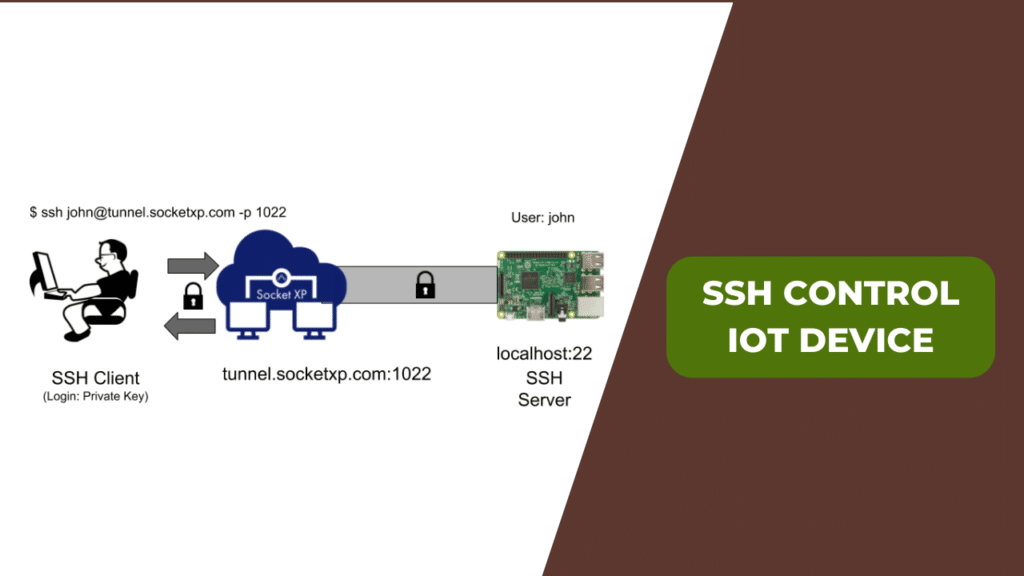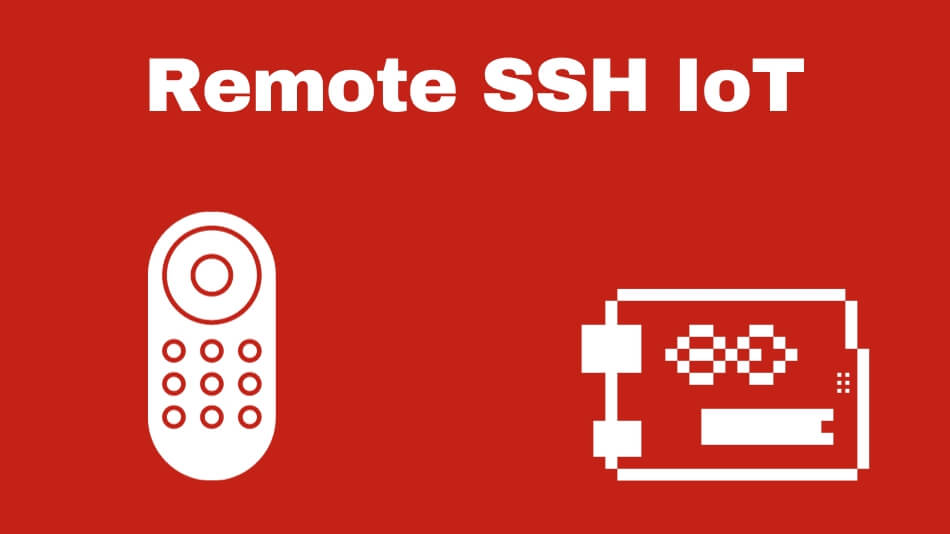Hey there, tech enthusiasts! If you're diving into the world of IoT devices and looking for the best SSH IoT device, you've come to the right place. In this digital era, securing your internet-connected gadgets is no longer a luxury—it's a necessity. SSH (Secure Shell) has become a go-to protocol for maintaining privacy and ensuring secure communication between devices. So, buckle up as we explore the top contenders in this space and help you find the perfect SSH IoT device for your needs!
Before we dive deep into the nitty-gritty, let's set the stage. The Internet of Things (IoT) is revolutionizing how we interact with technology. From smart homes to industrial automation, IoT devices are everywhere. But with great power comes great responsibility. Protecting your data and ensuring secure communication is crucial. That's where SSH comes into play, acting as the digital bouncer for your IoT ecosystem.
Now, you might be wondering, "Why should I care about SSH in my IoT setup?" Well, my friend, think about it this way: your IoT devices are like little spies in your home or office. They collect data, communicate with each other, and sometimes even interact with the outside world. Without proper security measures, you're leaving the door wide open for hackers and cybercriminals. And nobody wants that, right? So, let's figure out which SSH IoT device can keep your digital fortress safe.
Read also:Did Cory Weissman Marry Jess Unpacking The Real Story Behind The Romance
Understanding SSH and Its Role in IoT Security
First things first, let's break down what SSH actually is and why it matters in the IoT world. SSH, or Secure Shell, is a cryptographic network protocol that allows secure communication between two devices over an unsecured network. It's like having a private conversation in a crowded room—nobody else can eavesdrop. In the context of IoT, SSH ensures that the data exchanged between devices remains confidential and tamper-proof.
Here are some key benefits of using SSH for IoT devices:
- Encryption: SSH encrypts all data transmissions, making it nearly impossible for unauthorized parties to intercept or decipher the information.
- Authentication: It verifies the identity of both the client and server, ensuring that you're communicating with the right device.
- Remote Access: SSH enables secure remote management of IoT devices, which is a game-changer for administrators and users alike.
In short, SSH is your digital Swiss Army knife when it comes to securing your IoT setup. But not all SSH IoT devices are created equal. Let's explore the factors that make a device truly stand out in this competitive market.
Key Features to Look for in the Best SSH IoT Device
When shopping for an SSH IoT device, there are certain features you should keep an eye out for. These features will not only enhance the security of your setup but also make your life easier in the long run. Here's a quick rundown:
1. Strong Encryption Protocols
A good SSH IoT device should support robust encryption algorithms such as AES-256 and RSA. These protocols ensure that your data remains secure even if someone manages to intercept it. Think of it as locking your digital valuables in a Fort Knox-grade safe.
2. Easy-to-Use Interface
No matter how secure a device is, if it's a pain to use, it's not worth it. Look for an SSH IoT device with an intuitive interface that allows you to configure settings without needing a PhD in computer science. User-friendly interfaces are the name of the game.
Read also:5starsstockscom Blue Chip Your Ultimate Guide To Investing In Bluechip Stocks
3. Regular Software Updates
Cybersecurity threats evolve rapidly, so it's crucial to choose a device that receives regular software updates. These updates often include patches for vulnerabilities and new features to enhance security. It's like giving your device a digital booster shot.
Now that we've covered the basics, let's take a closer look at some of the top SSH IoT devices on the market.
Top 10 Best SSH IoT Devices
Here's a comprehensive list of the best SSH IoT devices available today. Each one has its own strengths, so your choice will depend on your specific needs and preferences.
1. Raspberry Pi 4
The Raspberry Pi 4 is a powerhouse in the world of IoT devices. With its ability to run various operating systems and support SSH out of the box, it's a favorite among hobbyists and professionals alike. Plus, its affordability makes it a no-brainer for many users.
2. NVIDIA Jetson Nano
For those who need a bit more processing power, the NVIDIA Jetson Nano is a fantastic option. It's designed for AI and machine learning applications, but its SSH capabilities make it a great choice for secure IoT setups.
3. BeagleBone Black
The BeagleBone Black is another popular choice for SSH IoT enthusiasts. Its small form factor and Linux compatibility make it ideal for a wide range of projects. Plus, its community support is second to none.
4. ESP32
If you're looking for something more compact and budget-friendly, the ESP32 is worth considering. It's a microcontroller with built-in Wi-Fi and Bluetooth, making it perfect for lightweight IoT applications that require SSH security.
5. Intel NUC
For those who need a more robust solution, the Intel NUC (Next Unit of Computing) is a solid choice. It's essentially a mini PC that can handle complex tasks while still providing top-notch SSH security.
6. Orange Pi
The Orange Pi is often compared to the Raspberry Pi, and for good reason. It offers similar capabilities at a competitive price point, making it an attractive option for SSH IoT enthusiasts on a budget.
7. Rock Pi 4
The Rock Pi 4 is another strong contender in the SSH IoT device market. Its powerful processor and expandable storage options make it a versatile choice for a variety of projects.
8. Arduino MKR WiFi 1010
For beginners or those working on smaller-scale projects, the Arduino MKR WiFi 1010 is a great option. It's easy to use and supports SSH, making it a perfect starting point for learning about secure IoT communication.
9. Pine64
The Pine64 is an affordable and capable device that supports SSH and a wide range of operating systems. Its community-driven development ensures that it stays up-to-date with the latest security features.
10. Intel Edison
Although it's been discontinued, the Intel Edison still holds a special place in the hearts of many SSH IoT enthusiasts. Its tiny size and impressive capabilities make it a great choice for legacy projects.
How to Choose the Right SSH IoT Device
With so many options available, choosing the right SSH IoT device can feel overwhelming. Here are a few tips to help you make the best decision:
- Identify Your Needs: Determine what you'll be using the device for. Are you building a smart home system, an industrial automation setup, or something else entirely?
- Consider Your Budget: While more expensive devices often come with better features, there are plenty of affordable options that still pack a punch.
- Look for Community Support: Devices with active communities tend to have better documentation, more tutorials, and faster updates.
Remember, the best SSH IoT device for you is the one that aligns with your specific requirements and goals. Don't be afraid to experiment and try out different options until you find the perfect fit.
SSH IoT Device Performance Metrics
To truly evaluate the performance of an SSH IoT device, you need to consider several metrics. These include:
1. Processing Power
A faster processor means quicker data processing and better overall performance. Look for devices with multi-core processors if you plan on running resource-intensive applications.
2. Memory and Storage
More RAM and storage capacity allow for smoother operation and the ability to store larger datasets. Make sure the device has enough memory to handle your intended workload.
3. Connectivity Options
Wi-Fi, Bluetooth, Ethernet—these are just a few of the connectivity options you should consider. The more options a device offers, the more versatile it will be in different environments.
By analyzing these metrics, you can get a clearer picture of how well a particular SSH IoT device will perform in your specific use case.
Security Best Practices for SSH IoT Devices
Even the best SSH IoT device won't keep you safe if you don't follow proper security practices. Here are a few tips to help you maximize the security of your setup:
- Change Default Credentials: Always change the default username and password on your device to something unique and strong.
- Enable Two-Factor Authentication: Adding an extra layer of security can go a long way in protecting your data.
- Regularly Update Firmware: Keeping your device's firmware up-to-date ensures that you have the latest security patches and features.
Following these best practices will help you create a secure and reliable SSH IoT ecosystem that you can trust.
Real-World Applications of SSH IoT Devices
SSH IoT devices aren't just theoretical concepts—they're being used in real-world applications every day. Here are a few examples:
1. Smart Homes
From controlling your lights to monitoring your security cameras, SSH IoT devices are the backbone of modern smart homes. They ensure that your personal data remains private and secure.
2. Industrial Automation
In factories and manufacturing plants, SSH IoT devices are used to monitor and control machinery. Their ability to provide secure remote access is invaluable in these environments.
3. Healthcare
SSH IoT devices are also being used in healthcare to monitor patients and manage medical equipment. The security and reliability they provide are critical in these life-saving applications.
These are just a few examples of how SSH IoT devices are transforming industries across the globe.
Future Trends in SSH IoT Devices
As technology continues to evolve, so too will the capabilities of SSH IoT devices. Here are a few trends to keep an eye on:
- Increased Integration with AI: As AI becomes more prevalent, we can expect SSH IoT devices to incorporate more intelligent features and capabilities.
- Enhanced Security Protocols: With cyber threats becoming more sophisticated, SSH IoT devices will need to adopt even stronger security measures to stay ahead.
- Smaller Form Factors: The demand for compact and portable devices will drive manufacturers to create even smaller SSH IoT solutions without sacrificing performance.
These trends will shape the future of SSH IoT devices and open up new possibilities for innovation and growth.
Conclusion: Secure Your IoT Future Today
And there you have it, folks—a comprehensive guide to finding the best SSH IoT device for your needs. Whether you're a tech-savvy hobbyist or a professional looking to secure your IoT ecosystem, there's a device out there that can meet your requirements. Remember to consider factors like encryption protocols, ease of use, and regular updates when making your decision.
So, what are you waiting for? Take action today by exploring the options we've discussed and securing your IoT future. Don't forget to leave a comment or share this article with your fellow tech enthusiasts. Together, we can build a safer and more connected world!
Table of Contents
- Understanding SSH and Its Role in IoT Security
- Key Features to Look for in the Best SSH IoT Device
- Top 10 Best SSH IoT Devices
- How to Choose the Right SSH IoT Device
- SSH IoT Device Performance Metrics
- Security Best Practices for SSH IoT Devices
- Real-World Applications of SSH IoT Devices
- Future Trends in SSH IoT Devices
- Conclusion: Secure Your IoT Future Today


